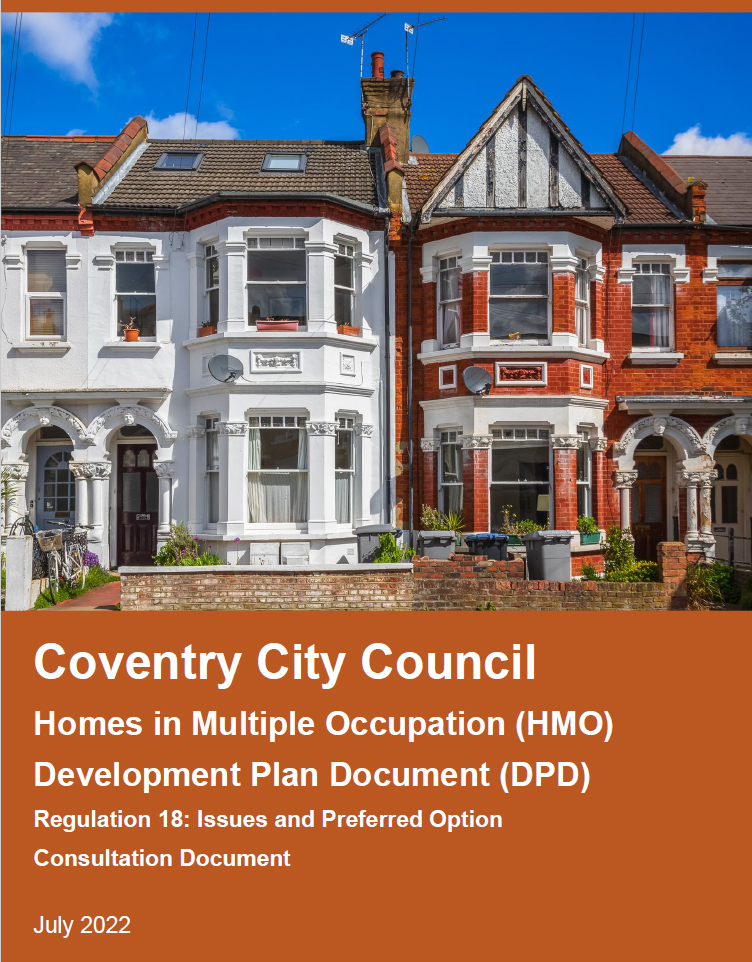
On 30th August the Council’s Cabinet is considering a report that will authorise public consultation on a plan to address the problems associated with Homes in Multiple Occupation (HMOs) in the city. Alongside this plan there will also be consultation on a draft Article 4 Direction that will be introduced to support the plan.
A HMO is defined as a property rented to at least three people who are not from one ‘household’ (e.g. a family) but share facilities such as a bathroom and kitchen. Conversion of properties into larger HMOs already requires planning permission, but smaller HMOs (of up to six people) are currently permitted development and do not require planning permission. The plan is to bring these under planning control in some areas of the city.
The growth of the number of students and young adults in the city, together with the restrictions on grants and earnings and the high price of housing has led to increasing pressure for the conversion of family homes into HMOs.
Whilst the conversion of an individual house to a HMO may not be particularly significant, the creation of large concentrations of HMOs can create issues that fundamentally change the nature of a neighbourhood. These issues mainly relate to increased parking pressures, noise, management of waste and recycling and anti-social behaviour. It can also reduce the amount of affordable family accommodation at the lower end of the housing market.
Concentrations of HMOs within neighbourhoods can lead to imbalanced and unsustainable communities and can damage the residential amenity and character of surrounding areas.
Harmful impacts associated with high numbers of HMOs can affect a community’s health and wellbeing. Over many years across Coventry, many issues have been reported to the Council regarding the increasing numbers and concentrations of HMOs. These include, but are not limited to:
• Reduced social cohesion resulting from the short-term nature of residencies involved with HMOs which may involve younger people overall – demographic imbalance.
• Reduced housing choice resulting from housing type/tenure imbalance (e.g. a shift from permanent family housing to more transient accommodation);
• Reduced community engagement from residents resulting from an increase in the transient population of an area;
• Noise and disturbance resulting from intensification of the residential use and/or the constantly changing nature of households;
• Overlooking and loss of privacy resulting from poorly considered internal layouts and intensification of use;
• Detriment to visual amenity resulting from poor waste management, poor property maintenance, accumulative external alterations to properties and use of frontage areas for off-street parking;
• Reduced community services resulting from a shift in the retail/business offer towards a narrower demographic such as the proliferation of Hot Food Takeaways; and
• Highway safety concerns resulting from congested on-street parking and poor waste management.
The plan is in the form of a Development Plan Document (DPD), which once approved will form part of the city’s Development Plan.
The Council intends to introduce an Article 4 Direction requiring planning permission for a change of use from family dwellings (C3) to small HMOs for between 3 and 6 unrelated people (C4 dwellings) within specified wards of the city. For the consultation Article 4 directions are proposed for 11 of the city’s 18 wards. These are:
- Cheylesmore
- Earlsdon
- Foleshill
- Lower Stoke
- Radford
- St. Michaels
- Sherbourne
- Wainbody
- Whoberley
- Westwood
- Upper Stoke
The Council has identified a threshold of 10% for restricting the concentration of HMOs in a residential area. This would be based on 100 metre circle from the centre of the planning application site. There will also be control of detailed matters such as noise transfer, parking and refuse bins.
Consultation on the plan and draft Article 4 Direction will commence in September and last for eight weeks. This will be followed by formal publication of the plan in the first quarter of 2023 and a possible Examination in Public in the second quarter, with the plan coming into force in the third quarter (July – September 2023).
Paul Maddocks, Chair of CAN said “This is great news. Coventry Action for Neighbourhoods was set up because of the rise of many family houses being made into HMOs. We have been asking for Article 4 Direction for the past eight years. And it looks like things are starting to happen due to Cllr. David Welsh and the currant City Council.”
Councillor David Welsh, Cabinet Member for Housing and Communities, said. “These proposals would force landlords and developers to seek full planning permission for future conversions. We believe this will help improve neighbourhoods.”
The Coventry Society supports this plan.
